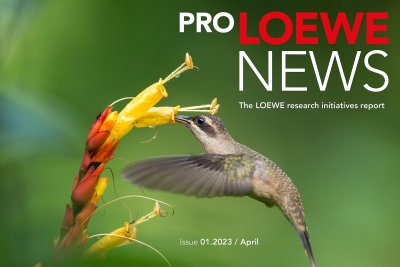Research-Initiatives
FLOW FOR LIFE An artificial network for organ-like 3D cell aggregates

About 80% of drug candidates that have successfully passed the preclinical phase of drug development including animal tests fail in clinical trials as they turn out to be toxic or non-effective in humans. One of the major reasons for this high failure rate are animal models that do not adequately recapitulate human physiology and disease.
Three-dimensional tissue- or organ-like cell cultures produced in the laboratory are promising alternatives that allow for efficacy and toxicity tests on human cells outside the body. They could also be of interest for regenerative medicine in the future. However, the quality of organ-like cell cultures on a centimeter scale is currently not yet sufficient. In particular, there is a lack of a vascular system through which liquids can flow.
Scientists at the TU Darmstadt want to develop controllable and measurable, artificial supply networks in the framework of the LOEWE research initiative FLOW FOR LIFE. Their research aims at achieving a sufficient supply of nutrients and oxygen for organ-like three-dimensional cell cultures. The interdisciplinary team at the TU Darmstadt combines engineering and natural science expertise from five departments. FLOW FOR LIFE builds on Hesse's strengths in medical technology and pharmaceutical research and is supported by three Hessian companies: Merck Healthcare KGaA, B. Braun Avitum AG and the subsidiary Unicyte of Fresenius Medical Care.

Partners
TU Darmstadt
Merck Healthcare KGaA
B. Braun Avitum AG
Fresenius Medical Care-Unicyte
Fields of study
mechanical engineering
biology
chemistry
physics
electrical engineering
information technology
Funding period
since 2022Project Coordinator
Prof. Dr. Ulrike Nuber
Prof. Dr.-Ing. Jeanette Hussong
Locations
- Darmstadt




